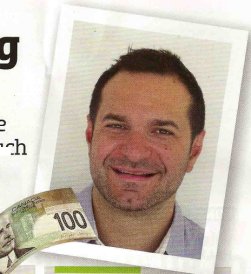 Just this past week alone I've had the same conversation with 3 different friends and associates. They all went something like this:
Just this past week alone I've had the same conversation with 3 different friends and associates. They all went something like this:
Friend - "How's the real estate market?"
Me - "Great! It should be good for the foreseeable future and I'm looking to add to my portfolio."
Friend - "I need to purchase an investment property."
Me - "So what's holding you back?"
Friend - "I don't know ... fear of the unknown."
Every conversation didn't go exactly like that, but it was pretty much the spirit of every discussion we had. These are all smart and educated individuals with the means to acquire an investment property and the skill set to easily manage an investment property. The common theme is always the fear of actually pulling the trigger. This mindset has alot to do with the fear of the unknown and it makes total sense. I think its just human nature to be cautious when delving into new areas.
I purchased my first investment property some 15 years ago. Not only was it my first investment property, it was my first property purchase period. At the time I was still a student finishing my MBA and renting an apartment. Was I nervous about pulling the trigger? Of course. Who wouldn't be in my situation ... especially given the fact that it wasn't a duplex or triplex I was purchasing, but instead it was a 12 plex. Was there fear of the unknown? Absolutely. However, I crunched all the numbers, did my due diligence, reviewed the applicable laws and guidelines and eventually I pulled the trigger and have never looked back.
When it comes to real estate investing, time can be your greatest ally or worst enemy depending on which camp you're in. If you own real estate, the passage of time is contributing to (1)cash flow, (2) mortgage paydown and (3)appreciation. If you're sitting on the sidelines waiting to build up the courage to pull the trigger, every day that goes by is a lost opportunity.
I can think of a number of individuals within my sphere that were sitting on the fence for years before actually pulling the trigger. Sometimes I think they got sick of hearing me preach about the virtues of real estate investing and just invested to get me to shut up :-) Had these individuals pulled the trigger when they first had the inclination to invest they would have been much further ahead in terms of wealth creation. Nonetheless, these individuals have done very well with their investments since pulling the trigger and every single one of them regrets the fact that they didn't act sooner.
Real estate investing may not be for everyone, but for those that have the means and the desire to do it, but just can't pull the trigger, this is my advice to you. You will never have all the answers before you invest in real estate, there will never be a perfect time to invest as something will always come up and there will never be a perfect investment property as you will always find some faults with it. If you can come to terms with the above then just go ahead and pull the trigger. The one thing I can assure you of is that experience is the greatest teacher of them all.
When it comes to real estate investing, time is money, so make the decision to pull the trigger sooner rather than later.
Paul Kondakos, BA, LL.B, MBA - Professional Real Estate Investor
 Paul Kondakos | Posted on
Paul Kondakos | Posted on  Friday, January 2, 2015 at 6:09PM
Friday, January 2, 2015 at 6:09PM 


